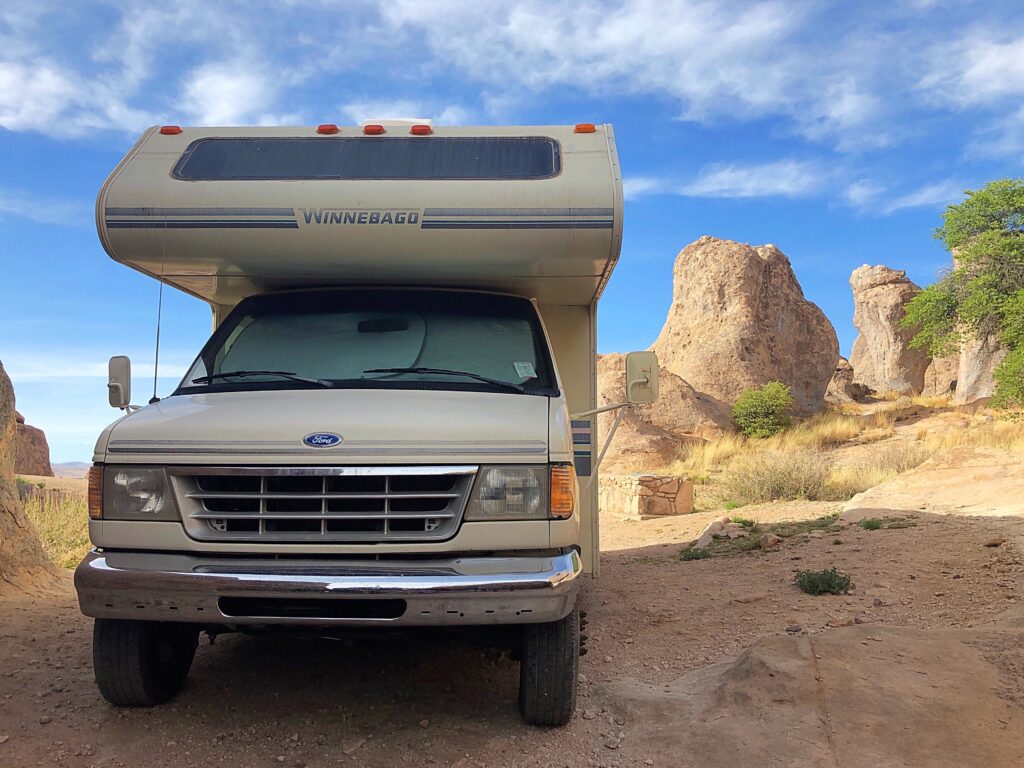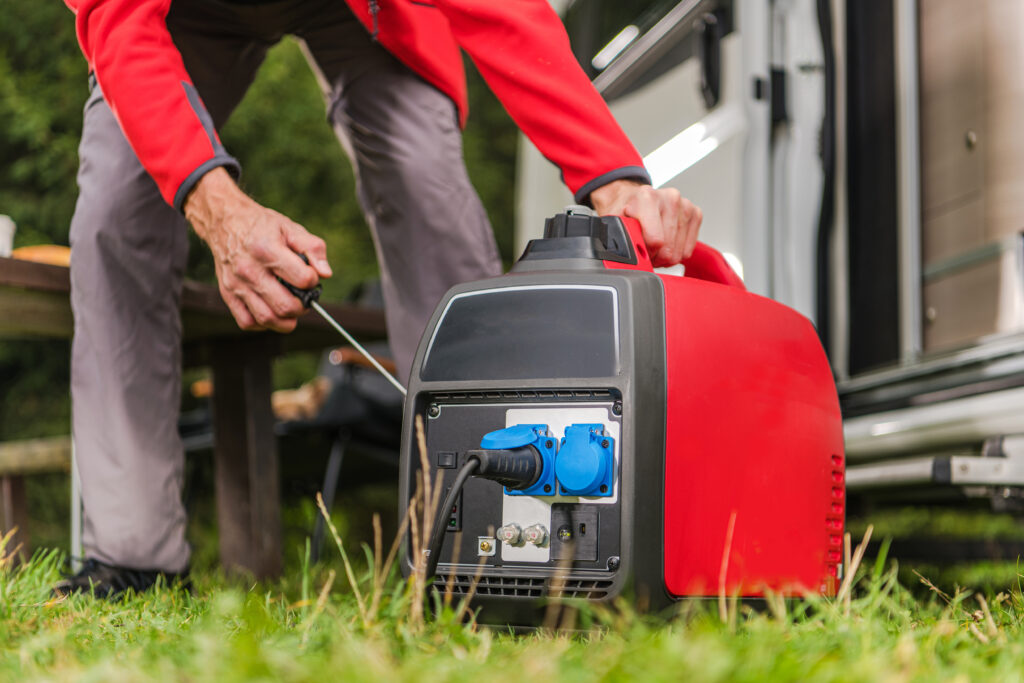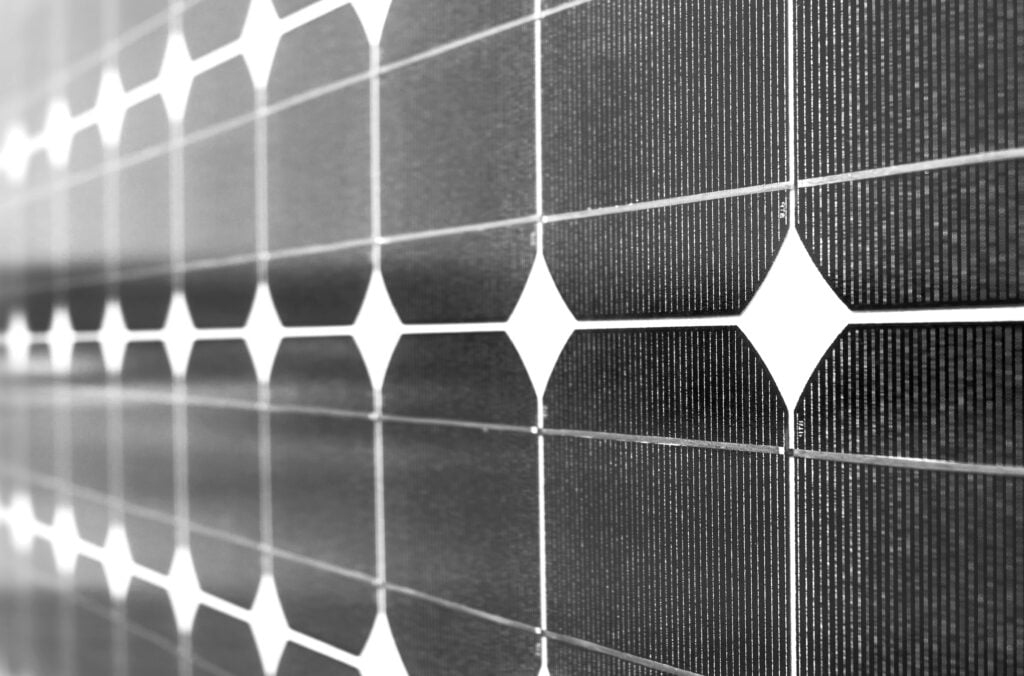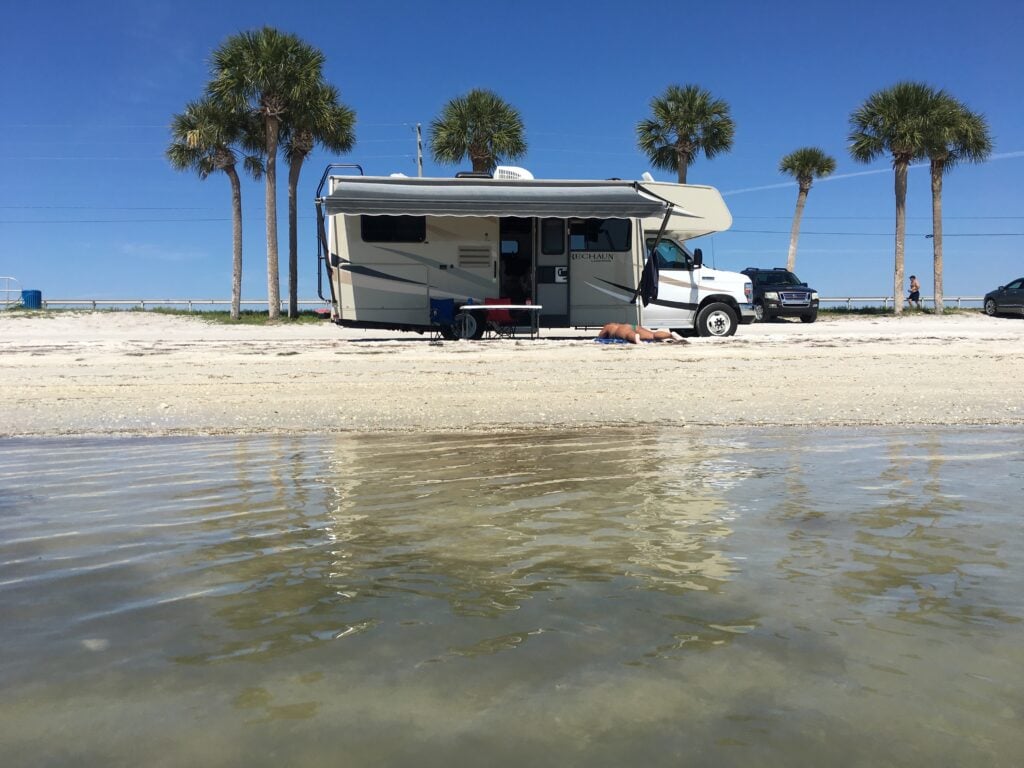RV boondocking power is an essential piece of the puzzle when it comes to thoroughly enjoying your RV. Being able to camp in remote locations away from the hustle and bustle of a crowded campground is a freeing experience. Today we’ll look at how you can power your RV while boondocking.
RV Boondocking Power Basics
Boondocking means camping without connections, including electrical connections. Your RV likely came with at least one battery that will power your 12-volt system when not connected to shore power. This could be lights and emergency devices like carbon monoxide detectors. To use your 120-volt outlets and other appliances, you’ll either need to add an inverter to your electrical system or have a backup power source.
Even the best RV batteries don’t last forever. You’ll need a way to recharge your house batteries to avoid damaging them. Make sure you avoid letting your batteries get below a certain threshold, depending on what type of battery you’re using for your battery bank.

RV Boondocking Power Options
Luckily for RVers looking to boondock, there are a couple of great options to consider for powering your RV while boondocking. Let’s take a look!
Generators
When it comes to consistency, generators are one of the best choices for powering your RV while boondocking. It doesn’t matter if a generator uses diesel, gasoline, or propane; they’re great for quickly producing a large amount of power.
A generator uses fuel to run an engine. The generator has an onboard alternator that relies on the engine to assist with creating electrical power. Generators vary in size and are measured by the number of watts they create. The more watts a generator can produce, the more power it can provide.
Generator Pros
Many RVers turn to generators to power their RVs because they’re relatively inexpensive. Depending on what you want to power in your RV, you can spend $500-$1,000 and get a quality generator for your RV.
Generators can provide power the minute you need it and for as long as you can keep the engine running. When the engine is running, you know your battery bank is getting charged and that you can run important items like microwaves and air conditioners. Keep an eye on your power usage to avoid overloading your generator.
Generator Cons
While generators are great, several things make them less than ideal. First of all, generators are incredibly loud. Even if it’s your generator, listening to the loud hum gets old. Campgrounds often enforce quiet hours to avoid guests having to listen to a loud generator all night.
While generators are often portable, you’ll need a place to store them. This may mean losing space in the back of your truck or a storage bay. Storage space while RVing likely comes at a premium, so minimizing the amount of wasted space is always a plus.
Depending on how often you need to run your generator, it may be cheaper to stay in a campground. Fueling your generator can get incredibly expensive, especially if you’re running your generator 24/7 to keep your RV cool.

RV Solar Power
Another popular option for powering RVs is solar. This is similar to how many homeowners mount solar panels on their roofs to help power their homes.
While having solar panels is great, this is just a small piece of the puzzle for keeping your RV powered. Because the sun isn’t always shining, you’ll also need to invest in your battery bank. Many RVers going with solar power upgrade their standard lead-acid RV battery to a more powerful lithium battery. The more batteries you have, the more power you get when the sun isn’t shining.
RV Solar Pros
RVers love solar panels because they harness free energy from the sun. As long as the sun is shining, the solar panels will collect energy to transfer to the battery bank.
Besides free energy, there are a few other things RVers love about solar power. There’s no noise or exhaust odors. The equipment doesn’t take up a large amount of space. The components last a very long time and often require very little maintenance. Once you get your solar system set up, you can forget about it and enjoy its benefits.
RV Solar Cons
While RV solar systems are great, they’re not perfect. There’s a massive up-front cost required for most solar systems. Quality solar setups can often cost more than $10,000, and these systems aren’t capable of running an air conditioner for long. If you’re hoping to run an air conditioner for long, you could spend more than $20,000. This massive expense is a roadblock for many RVers looking to power their RV while boondocking.

Which RV Boondocking Power Option Is Best?
Knowing your needs is the best way to determine which option is best for you. Let’s take a look.
For Avid Boondockers: Solar
If you’re planning to do a lot of boondocking, solar is by far the best option. Solar is a much quieter and more convenient option when it comes to powering your RV. You won’t need to make sure you have gas or worry about an engine or other parts malfunctioning.
The more you boondock, the more money you’ll save. The savings from boondocking can help offset the cost of a solar system upgrade. Many RVers find it easier to boondock with solar and don’t worry as much about keeping their batteries charged.
For Part-Time Boondockers: Generator
Those who plan to boondock occasionally would benefit most from a quality generator. While solar is great, part-time boondockers might not recoup the costs. A generator is a much smaller investment and packs a tremendous punch for the price.
If you’re part-time boondocking, you may have less trouble tolerating the hum of a generator. You also won’t have to worry about getting enough sunlight as a generator produces a tremendous amount of power when running.

Boondocking Is A Great Escape
Whichever method you choose to power your RV, we hope you’ll challenge yourself to boondock more often. Boondocking is a great way to escape a packed campground and experience the quiet of nature. Do you use a generator or solar power to power your RV while boondocking?
